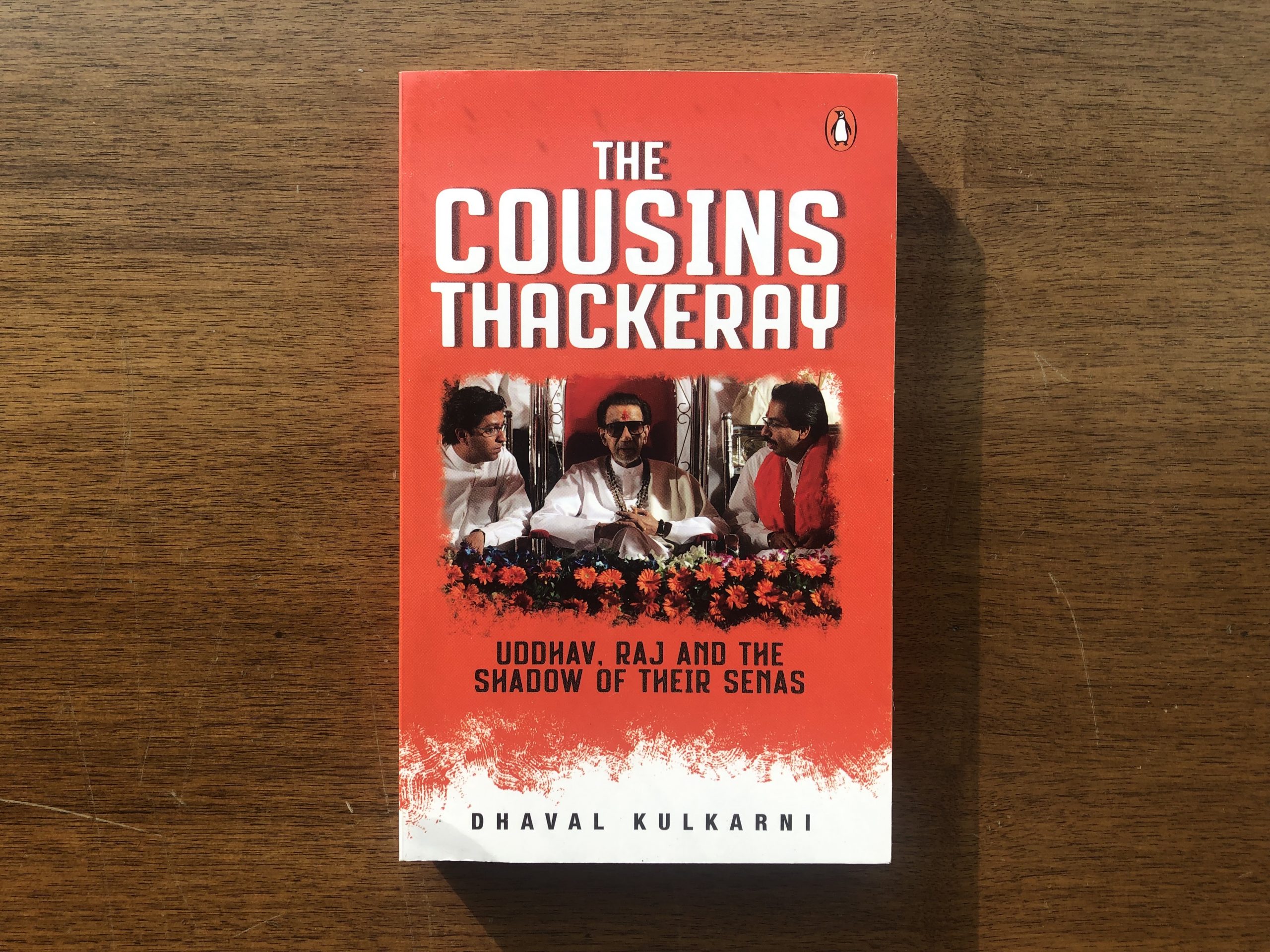
One, an abrasive, fire-breathing demagogue, was seen as his uncle’s political heir whose behavioural traits he cultivated. The other, an introvert, is at his best when plotting strategies on the drawing board rather than the rough-and-tumble of street-corner politics that his party is known for in India’s financial capital.
Dhaval Kulkarni’s The Cousins Thackeray evaluates the political careers of Shiv Sena president Uddhav Thackeray and Maharashtra Navnirman Sena (MNS) chief Raj Thackeray.
Read an excerpt from the book:
—
They may be first cousins twice over, but their personalities are poles apart.
One is abrasive, a fire-breathing demagogue, who is blunt to the point of being arrogant but remains one of the most popular crowd-puller in Maharashtra despite a string of electoral reverses. The other is introvert, soft-spoken, an enigma for many associates, and with his penchant for boardroom strategies, seems to be out of character with his rough-and-tumble party, which dominates the streets of India’s financial capital, thanks to its muscle.
This, in a nutshell, is a description of the personalities of the two warring Thackerays, Shiv Sena president Uddhav Thackeray and MNS chief Raj Thackeray.
A Shiv Sena loyalist attributes these differing styles to their starting points in politics. For instance, Raj cut his teeth in student politics, which was violent and rough in those days, while Uddhav’s springboard was the party newspaper Saamna. Hence, Raj gradually imbibed Balasaheb’s behavioural style realizing it would be his USP, thus fitting the stereotype of an archetypal Shiv Sainik, whereas Uddhav is more comfortable as a back-room manipulator, diplomat and strategist.
‘Raj is streetwise compared to Uddhav, who is a late bloomer in politics,’ explained the Sena source, who has worked with both brothers. ‘Uddhav was coming of age when the Shiv Sena was launched. Hence, he was seen as the party chief’s son and led a protected life,’ he said.
While Raj connected to his cadre via his aura and charisma, Uddhav had a strong party organization to back him. However, both lacked the ability Bal Thackeray possessed—going beyond one’s immediate circle and connecting with the workers at the grass roots. Being based out of Mumbai, where society is more cosmopolitan, they do not understand the finer points about caste politics that holds the key for any political mobilization in rural areas. This restricts their ability to launch any social engineering projects.
The Sena source said the cousins were also unable to hold on to influential leaders, choosing to rely instead on their close advisers with no real mass base. Uddhav is said to have a healthy distrust for mass leaders within his party. This may be because many of them like Chhagan Bhujbal, Ganesh Naik and Narayan Rane had grown beyond a point and then split from the Shiv Sena. Instead, he relies on people who are more comfortable with office-level politics.
A close associate of Raj Thackeray, who has since fallen out with him explained that the ‘interference’ of some of his advisers and personal friends in the party’s internal affairs, had led to influential party leaders deserting it in cities like Nashik, where the MNS had a strong presence.
‘These people would paratroop from Mumbai and dictate terms to local leaders with a mass following. The inevitable happened with them finally quitting the party,’ he said, adding that a sore point for many in the MNS was that many of Raj’s personal friends, who were not ‘professional politicians’ were calling the shots.Ironically, Raj had blamed the Shiv Sena’s coterie politics for his decision to quit the party.
The Cousins Thackeray examines questions about identity politics, and the social, cultural and economic matrix that catalysed the formation of the Shiv Sena and the MNS from it.
The book is available now.









